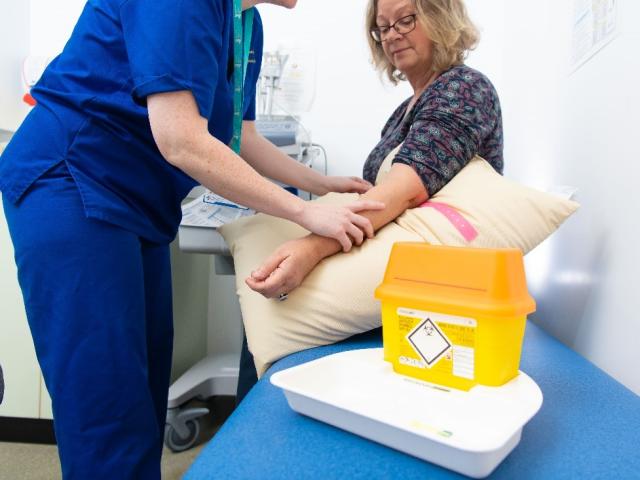
Bowel Cancer Awareness Month 2023
Bowel Cancer UK estimates that approximately 42,000 new cases of bowel cancer are diagnosed in the UK every year, demonstrating that bowel cancer is the second biggest cancer killer in the UK. Researchers in Wales, together with the public, are working tirelessly to investigate new ways to diagnose, treat and care for patients diagnosed with bowel cancer.
April is Bowel Cancer Awareness Month, which offers us an opportunity to highlight some of the incredible research happening in Wales.
Genetic factors linked to bowel tumours
Researchers at Wales Gene Park are looking into new genetic ways in which small growths, called polyps, and tumours can develop in the bowel in certain inherited cancer syndromes. Their work is highlighting the potential usefulness of expanding diagnostic screening.
Early detection of colorectal cancer diagnosis
Colorectal cancer continues to be diagnosed in the late stages. One way to reduce the time to diagnosis could include a primary care-based diagnostic test. A study led by Professor Dean Harris and funded by Health and Care Research Wales through a Research for Patient and Public Benefit Wales Award, explored the viability of novel blood and faecal tests to diagnose colorectal cancer. These new tests offer patients at risk of colorectal cancer a quicker diagnosis, whilst patients without a positive test avoid the need for invasive diagnostic procedures like colonoscopy.
Does having two or more long-term conditions impact the results of colorectal cancer screening?
Patients’ other existing health conditions can affect colorectal screening results. A Health and Care Research Wales funded project by Dr Stephanie Smits aims to provide an understanding of the factors affecting completion of colorectal cancer screening and aims to develop improved screening strategies which take more than one long-term condition into consideration.
Health and Care Research Wales, the Wales Cancer Network and the Wales Cancer Research Centre also developed the first-ever coordinated Cancer Research Strategy for Wales (CReSt) which brings together the whole research community in the fight against cancer, including bowel cancer.
Julie Hepburn, 68, from Newport, was diagnosed with stage 3b colorectal cancer in 2014. After emergency surgery and chemotherapy, she went into remission and has been helping shape CReSt from the very beginning. Julie said:
Being diagnosed with cancer was a huge shock – I never expected it. After going through the gruelling treatment process and seeing how hard doctors and clinicians work to keep patients alive, I wanted to help to make things better for future cancer patients."
That’s how I made my first steps into public involvement for cancer research. As lay people we do a very valuable job by offering a different perspective to researchers and speaking up for patients."
I was delighted to be involved with the development of CReSt. It is such an important piece of work and I really feel as if my input was listened to. We all want to make cancer research sustainable in Wales and we’ve got to have a plan. CReSt is a way forward, something we can all work towards, and I believe it will be of great benefit to the people of Wales."
This research would not be possible without you. If you are interested in cancer research in Wales, sign up to our bulletin to keep up with the latest research news and opportunities to help with and take part in research.